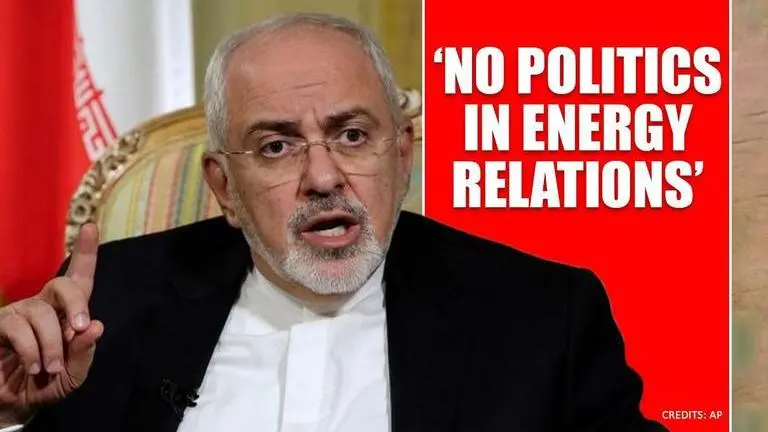Updated 17 January 2020 at 15:13 IST
Iran expects India to defy US sanctions to source its oil; devise new barter trade
Iranian Foreign Minister Zarif Javad has called on New Delhi to flout the "maximum pressure" sanctions imposed by the US, and continue to source its energy.
- India News
- 4 min read

Iranian Foreign Minister Zarif Javad has called on New Delhi to flout the "maximum pressure" sanctions imposed by the Donald Trump administration, and continue to source its energy from Iran. Javad Zarif, on a three-day visit to India, said on Thursday that the country will not find a stable and reliable energy partner apart from Iran. He insisted that Iran could meet the oil needs of India. Further 'assuring' that India can't find a more 'reliable and stable' energy partner than Iran.
Emphasising that Iran has no political issues with India and that it does not involve politics with business, Javad Zarif said, "For India's economic growth you need more and more energy and energy security, which has been an area of concern. I can assure you that you can't find an energy partner which is more stable more reliable than Iran." "We never involved politics in our energy relations. And if we did, we don't have political problems with India. We are the secured source of energy for India," he said at the FIEO meeting in Mumbai. "Losing Iran as the reliable provider of Indian energy needs certainly does not make India more secure, does not make Indian economy more reliable," Zarif added.
US President Donald Trump imposed sanctions to cripple the Iranian economy, after unilaterally deciding to pull-out from the nuclear pact in signed under Obama-regime by world powers in 2015. Since then, Washington persuaded New Delhi to halt imports of crude oil from Iran. The Foreign Minister of Iran further noted that the US was looking to "increase the prices of oil and energy" for its own sake. "These are also attempts made so that they (the US) can increase the prices of oil and energy. Now the US is the biggest exporter of oil and they want to take Iranian share in Asia through the sale of their shale gas, which is much more expensive and much less reliant energy. We need to find a response to this. But I want to tell you that Iran can continue to provide economical and reliable oil to India," Javad Zarif noted.
The minister also said that the two countries can collaborate and complement each other in various other areas as well. "I have, at various meetings with the Prime minister Narendra Modi, security adviser, and the Indian foreign minister, said and discussed possibilities of trade. We don't want to put our friends in a difficult situation. But we need to find a mechanism for improving the trade," he added.
Advertisement
India-Iran energy trade
Javad Zarif said the bilateral trade between the two countries has seen a sharp decline in 2019 mainly impacted by oil exports. "While it stood at $17 billion in 2018, it fell to $7 billion in 2019 and will go further low if money dries up," the Foreign Minister said. Referring to China, Russia, and Turkey, who still continue with their energy agreement with Iran, Javad Zarif in September 2019 had said, "This is India's sovereign decision, but others have chosen differently."
Advertisement
By 2012, India was the second-largest importer of oil from Iran, after China. The import from Iran to India did not stop despite the sanctions between 2006-2016. In 2018, Iran sold 620,000 barrels of oil per day to India, costing up to $48 million per day. In November 2018, Washington imposed sanctions on Iran, however, it gave a six months waiver to India to find alternative sources. As per recent reports, India has already boosted its imports of crude oil from the US after it stepped up its sanctions against Iran.
The impact of the tensions spiraling in the Middle Eastern region after Iran's retaliation on the US for killing the IRGC commander Qasem Soleimani reflected sharply on the oil prices by almost 5%. The prospect of wider regional unrest, had an effect on stock markets across Asia as well, as markets have been on the edge.
(with PTI inputs)
Published By : Aishwaria Sonavane
Published On: 17 January 2020 at 15:13 IST
